Linked here is a long essay about food, farming, and vegetarianism. It’s based on talks I gave a few years ago, and on an earlier write-up of those talks (which I also posted here). Both the talks and the essays are a response to a reading of Peter Singer’s Animal Liberation, and Singer’s argument that if one seriously cares about the moral side of our relationships with animals, one must become a vegetarian (or something very close to one). I’m still thinking about the problem, still continually adjusting what I eat, and this new essay updates and goes further than the others.
The last part of the work on the essay was done during a dietary experiment. I am half way through a month (February, or Vebruary) that was originally planned to be a near-vegan month. I’ll say a lot about the changes in plan below. I began the experiment and also drove up to Nelson Bay, to go diving. The photos here are from a pair of dives on that trip. On the diving side, the trip was notable because it was the first time I’ve dived at the “Pipeline” for nearly a year. A flood last March devastated much of the marine life in the whole area, but especially at the Pipe. Fly Point, my other main site in the bay, revived more quickly (as it’s closer to the mouth of the bay and deeper), and I described conditions there in August. I didn’t go to the Pipe back then because it sounded such a wreck. But now, I’m happy to say, the site is definitely coming back.
On the first day I swam out on Fly Point, and it was pretty murky. Quite a few octopuses were in residence. The other notable encounters were with lobsters. I came across several, very large, under ledges in pairs (Eastern rock lobsters, I think). Especially at this site since the flood, I’ve been spending a bit of time with these animals. They reach their enormous antennae towards me, seem interested to touch and explore. This time, as I turned up, one pair waved those antennae with much excitement (“Greetings, Near-Vegan!”), and I guess I could have spent much of the dive being gently poked by them.
The dietary experiment: The aim was a near-vegan month. “Near” refers to the diet including a couple of eggs a day and my usual omega-3 fish-oil tablets. The eggs were included to smooth the path and because I could not see myself going onto a diet with much less protein very quickly. Some years ago, I wrote on this site about the history of my experiences with food: “Squashed by the pyramid” was the title, referring to the classic food pyramid that I had been told, for some decades, to work towards. Nearly 25 years back, in response to declining health, I switched to a higher-protein diet, and this has turned out well for me. The interaction between a high-protein diet and a concern with the ethics of food and farming, though, has been a continual problem. I eat animal products selectively, in an ethical sense, but I have tended to eat a lot of them. Working on, and then outwards from, my animal books Other Minds and Metazoa over the last few years has made the issue seem more acute. So I’ve been writing a bit about animal welfare, farming, and diet, and the third book in the series that began with Other Minds will have a long chapter on the topic. As part of this process, I thought I’d try a near-vegan month, both to see how I felt physically, and also to see how it affected my outlook, and my encounters with other animals.
The near-vegan diet turned out to be much more difficult than I expected. I’ll spare readers all the details, but it was discouraging. I felt unsettled, tired, and much of the time quite cold, surprisingly. Heartburn, headaches, inattention… it did not go well. The first two days or so were not a problem, but the following week was. So on day 10, I decided to change plans, and add dairy to the diet for the middle third of the month [1]. This transition was just as surprising as the previous one. Immediately I was fine, with all those problems gone. Right now, I feel better than fine: very sharp. I have another five days of this conventional vegetarian diet, and then I will go back to the near-vegan experiment, and see if things go any better.
During the near-vegan stage, I spent a lot of time thinking – as was planned – about how it felt and what it meant. [2] I don’t know quite what to make of the difficulty – whether it just amplifies my admiration for various vegan friends, shifts me towards believing even more in the importance of individual differences in this area, or, more plausibly, a combination of both. Perhaps I should have stuck with the first stretch of near-veganism, and waited to get used to it. (My understanding is that one’s microbiome, one’s gut ecology, has to make a shift.) But I was reluctant to do that during Covid. Especially with that cold and unsettled feeling, day after day, I suspected I was more vulnerable to pathogens than usual. I certainly expect to get Covid at some stage, but want to be well equipped to fight it off. I don’t regret the change of plan.
Suppose that when I go back, on Feburary 20th, to the near-vegan diet, I again find it difficult, with a stark contrast between the near-vegan and vegetarian conditions. I suspect that will happen, but don’t know, of course – perhaps a second run at the fence will be better. But suppose it’s as I say. Then this experiment will have revealed what I’m starting to think of as an ethically interesting decision problem. If this is how the last part of the experiment goes, near-veganism will be off the table, at least for now. What then goes onto the table?
In the long essay linked above, mostly written much earlier, the overall picture is as follows. I argue that a variety of different moral outlooks can reach a point of convergence in condemning modern high-intensity or “factory” farming, especially of pigs and chickens, and probably of several other kinds. I conceive this as a “first round” of decision-making, resulting in policy changes as well as individual choices. Then, as I see it, defensible moral outooks will diverge, perhaps permanently, over the defensibility of humane farming in which animals have longer lives, good conditions, little stress… and slaughter at the end. I won’t go through all the ideas bearing on that “second round” decision here. Instead, here are some ideas drawing on that discussion that bear on the dietary questions just above.
Suppose one decides that a wholly plant-based diet is not going to work, or even a near-vegan diet that includes eggs, and something must be added. Here are three things that might be added:
- Humanely farmed meat (especially beef),
- Sustainable wild-caught fish,
- Dairy products.
Let’s say, initially, that the goal is to choose one. Which should it be? They raise quite different ethical issues – each has advantages and disadvantages of distinct kinds. I think that some humane farming that produces meat also involves a good overall deal for the animal itself. In some cases, the animals live good lives. (When I say this, I don’t have in mind supermarket meat labeled “free range,” and so on, but a smaller fraction of what is produced.) On the other hand, killing is an inevitable part of this kind of farming, and perhaps there is something intractably bad in the practice of raising sentient animals to be killed.
One might instead opt for wild-caught fish. In that case, killing is also part of the picture, but our relationship to the animals’ lives is different. Our role is to cut short a life that would end anyway; we do not raise them to kill them. I think that the deaths involved in commercial fishing are probably not especially awful, compared to the death that would follow in the wild. But, in contrast to the cows, we can’t claim that we are, from the animals’ point of view, doing something that might be positive, overall, and I do think this can be argued in the case of best-practice humane farming.
The third option is dairy, which I am eating a lot of right now. I could become one of those epicurean vegetarians who don’t eat meat but have an impressive knowledge and appreciation of the endless international subtleties of cheese. Here the problems are different. I think that the lives of dairy cows within conventional farming are bad. The are probably nowhere near as bad as those of factory-farmed pigs, but worse than those of cows on humane farms who are being raised to be eaten, perhaps in general worse than those of more conventionally farmed beef cattle (though those lives are different in many ways that raise further questions, such as the length of those lives). As far as I can tell, it is quite difficult to take dairy farming close to the welfare level seen in humane farming of beef cattle, in a way that is also economically feasible.
I don’t say this is inevitable. I know of one dairy farm in Australia that is exemplary in this way – How Now Dairy. It can be done. This farm keeps cows and calves together, sharing the milk; there is no early separation. Some cheese is made using that milk. It’s not available, at present, where I live, but that is partly Covid-related – it was starting to appear before the pandemic. (Disclosure: I own a small number of shares in this dairy. Setting aside retirement accounts that I don’t track, I don’t own shares in any other food-producing company.) It might be that this kind of humane dairy can survive and expand, in which case option 3 will look better. But at the moment, much of the cheese and butter eaten by vegetarians is produced in a way that is quite cruel.
When one eats this food, one is not eating the body of an animal that was killed to be eaten (as in options 1 and 2). One is instead eating something made as food by an animal that remains alive. And a cow produces over 10,000 gallons of milk during in its life within modern farming – a lot of food (for example, 10,000 pounds of cheddar). However, that life is usually far from a good one. I would rather come back as a beef cow on a humane farm than a dairy cow on most farms. Humane dairy might be best of all, but I am assuming, again, that it is harder to achieve than humane beef farming.
I have a sense that there ought to be a best choice, between options 1, 2, and 3 (humane beef, wild-caught fish, dairy). I’d be willing to choose any of those if I thought it was clearly the best. When I say that, I don’t mean that I’d never lapse from such a choice, but I don’t see that as the relevant standard. It would be good to have a sense of the best goal to pursue in the circumstances, even if it’s pursued with some flexibility. The question also remains significant even if, as is possible, I decide that all of 1, 2, and 3 above are OK; there’s still a good question about what might be ideal, or most defensible. Again, if dairy that was produced as humanely as meat from the best beef farms was available, I guess that might be best. The immediate choice does not include such an option. (I don’t know enough yet about goat and sheep dairy farming practices – that is a gap in my analysis. I think my body would resist if confined to either of those, in any case.) And I do, again, think that best-practice humanely farmed meat is probably a good deal for the animals themselves. [3]
That’s where I am right now. In the first half of my experiment, I’ve learned that near-veganism is difficult for me – at least, that is how it looks so far. I’ve also learned that a conventional dairy-including vegetarian diet seems fine. And this has made vivid to me an ethical choice-point where the best way forward, even in principle, seems unclear.
___________
Notes
[1] Why not amp up the protein with supplements? I was already doing some of that, and as discussed in my paper, it’s been the only way in recent years that I’ve been able to cut down my animal product consumption. Somehow it did not seem the right road in this situation, as those high-tech powders are not easy to deal with in larger quantities, and I already felt so sub-par.
[2] Something I was not expecting to enjoy, but did enjoy, was having to think about food availability much more carefully. What is available here? What will not be available where I am going next? In Nelson Bay, there’s a place that does traditional Australian potato scallops. I didn’t particularly feel like them [nb – they are not what they were 30 years ago…], but it’s a good vegan option in a fast-food setting. Potato scallops were once referred to by my friend and collaborator David Scheel, out on his first trip visiting the Jervis Octopuses, as “an Australian delicacy.” I am not sure that the word “delicacy” was intended for exactly that use (and he had not tried them at that stage). But the Nelson Bay scallops on Vebruary 2 were very good. OK, perhaps they are a “delicacy.”
[3] What about other kinds of seafood – shrimp, clams, and so on? And what about hunted as opposed to farmed meat (venison, wild boar)? I’m mostly not discussing them here just for simplicity. Hunted animals I see as in the same category as wild-caught fish. (This might be questioned, I realize, when it’s mammals being hunted.) So that second option in the list would naturally be broadened beyond fish. My sentimental attachment to crustaceans (see above), implausible as it might be, has me turning away from eating mountains of shrimp, and just about any lobster. Octopuses are off the menu, of course. Clams and oysters I see as good options in this context, and once the Vebruary experiment is done, I’ll probably return to them. I certainly don’t see any reason not to. But I don’t see them as a major food source.

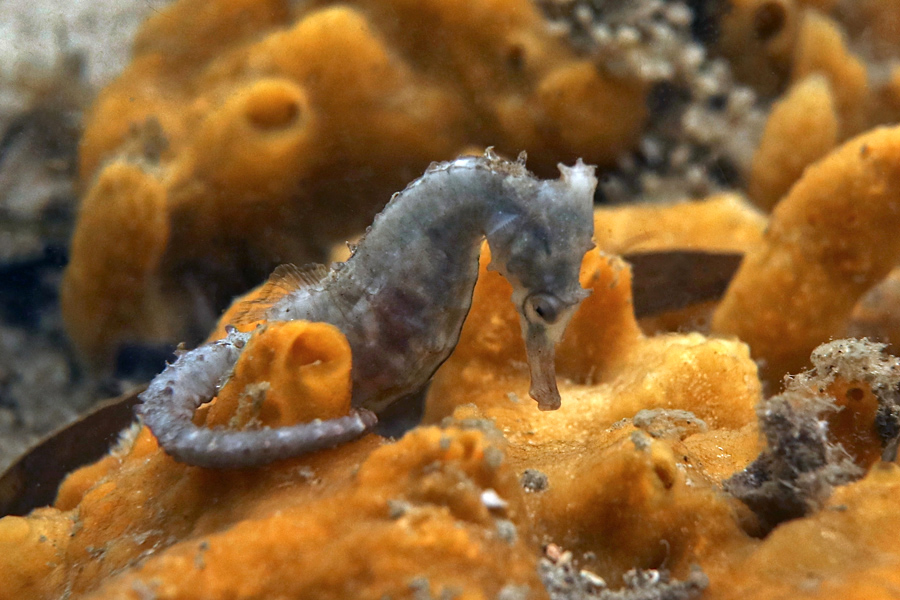
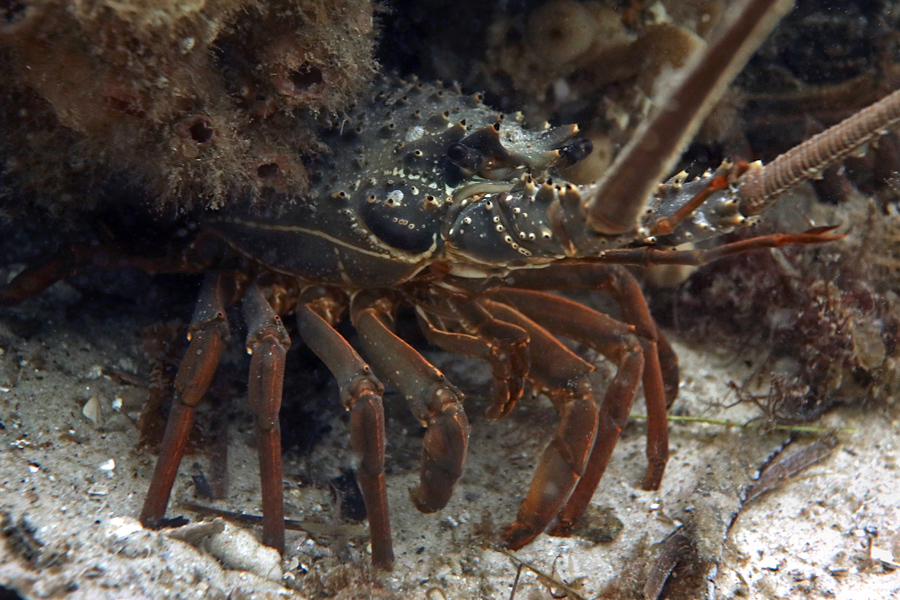
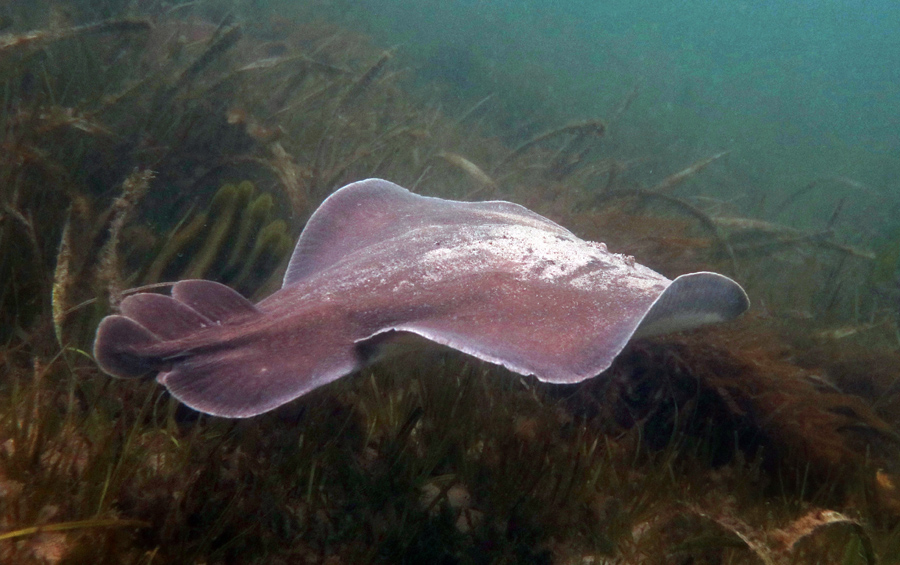
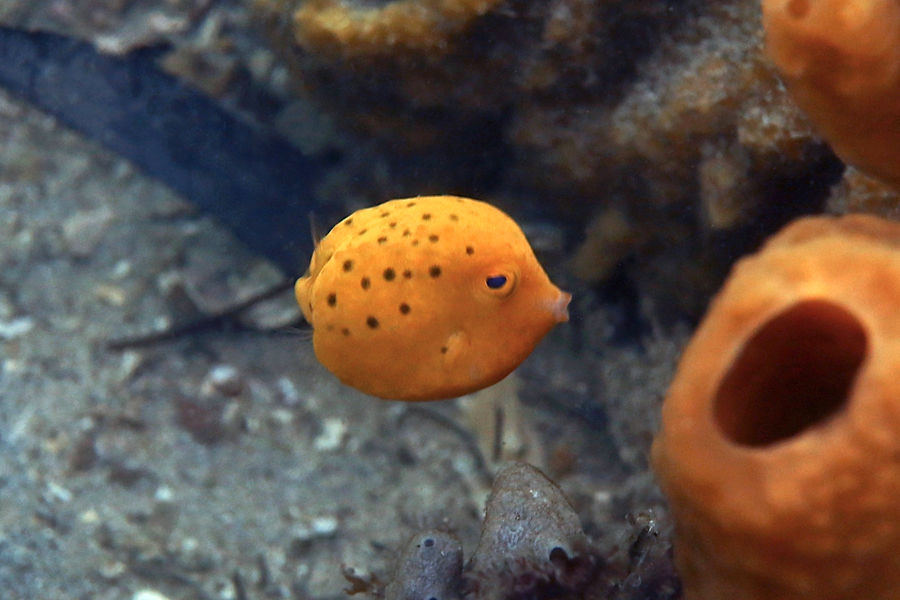
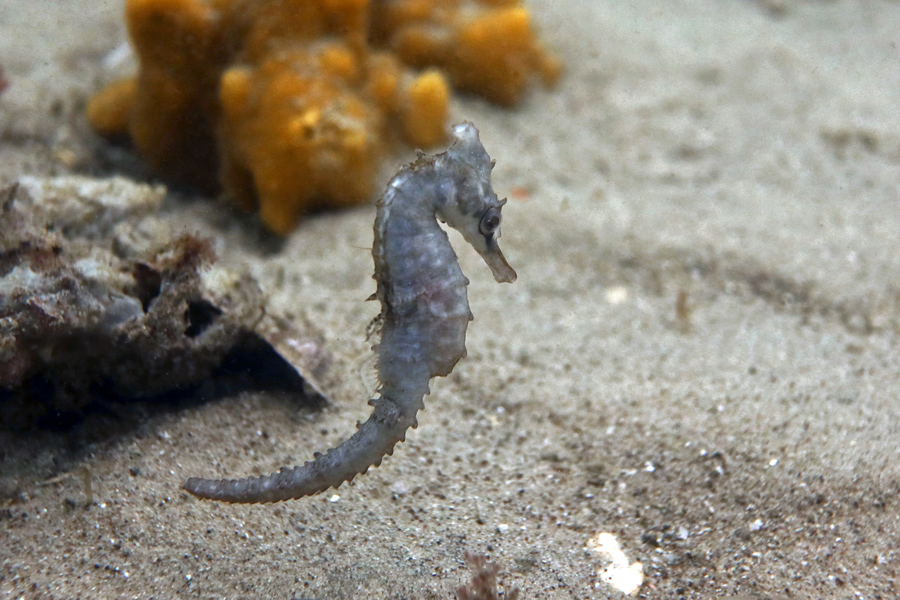
Don’t forget about B12 supplements—B12 deficiency maybe the cause of your tiredness.
Thanks. I do take a daily B-group supplement (have done before, as well as during the experiment).
I guess I might consider increasing it.